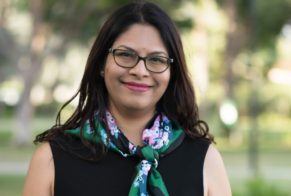Last month I visited Singapore while going on vacation in Australia. It is well famous that Singapore is a very beautiful lush green city & is a model for new developments. We all know Singapore as “fine city”, where there are many strict policies & rules about things & actions inside Singapore which resulted in a clean, properly maintained & functioned example of systematic urban planning.
But when we touched the Changi airport, what struck me most about Singapore, was there sustainable policies & implementation.
You can easily find recycling stations or recycles anywhere in Singapore in place of garbage bins. All those recyclers are not namesake but are properly classified & dedicated for papers, metal, glass, plastic, etc everywhere. Around 45% of the waste generated in Singapore is recycled at the moment. They produce power in recycling stations as well. The use of recycled material in construction is in common practice in Singapore when the world is hailing for these requirements for new green buildings!
The MRT metro system is fantastically connected throughout the city & with other transport means, so no wonder people use this public transport as their regular transport, they don’t need to have cars to stay in Singapore!
I was impressed by the fantastic system of reusing the MRT tickets. If you buy a single time MRT ticket, you also pay 1$ deposit at pay machine in addition to fair. After you reach your destination, you can put the ticket back in the ticket machine & get your 1$ deposit back. So that the MRT ticket is getting reused. Isn’t it amazing! I was happy to see one government practically cares for saving & recycling resources! It is definitely the most sustainable transport system in Asia.
Singapore is proof of ‘planning is key to sustainability’. Being a very small country area wise, they do not have enough natural resources. The power is generated on natural gas imported from Malaysia, the lack of enough natural source of drinking water & very small land area are the challenges Singapore government faces. So Singapore is not only a great example of sustainable cities but also how a city can survive self sufficiently.
In Singapore, they are already taking actions to be more self-sufficient & sustainable than any other city. The water is recycled to get ultra-clean, high quality “new water” out of it. The 50% area covers already existing water catchment area & they are planning to increase the water catchment area more to fulfill Singapore’s water needs. Singapore is already investing in solar technology to make it more cost-effective & to use it on a large scale in the future. The long-term plan of Sustainable Singapore 2050 & short-term Singapore Green plan 2012 includes many practical sustainable projects like Sun City project to use solar technology, Deep Tunnel Sewerage System to recycle all of the used water, electric vehicles & recharging stations for electric vehicles in infrastructure. Singapore offers large parks, green belts and open spaces which also shows how they have made this place such a livable city. When you are at Singapore Botanic Gardens, you get to see many residents running, walking dogs, groups exercising together.
Coincidentally when we were there, the same time World green building council conference was taking place in Singapore. We felt this place deserves to host such world-class conferences while educating & displaying visitors a very good example of sustainability within there city.
But most importantly, the Singapore govt only is not taking steps ahead towards sustainability but also the people of Singapore are taking part in it. It is pleasant to see many people walking, cycling on busy roads in temp around 28 degrees. People do recycling of their domestic waste voluntarily.
Just one incident to share with you inlines with this. When we were looking for a good restaurant to feast on famous Singaporean Chili Crab, while walking we were about to pass a man who was giving away some brochures outside a shopping complex. My friend who is residing in Singapore told me to ignore that man & walk straight ahead so that we wouldn’t take that paper (which was of no use to us) instead of taking it & keeping it with us till we find the next paper recycling bin. Suddenly I realized how green habits are developed in residents in Singapore just by implementing the right rules and creating a great urban infrastructure!

Amruta Kshemkalyani, an expert sustainability professional turned social entrepreneur, is the founder of the Sustainability Tribe, AK Sustainability
Read More >>
Copyright 2025 © Sustainability Tribe, Registered under 'Sustainability Tribe Marketing Management' in the U.A.E., Design by LBM INFOTECH